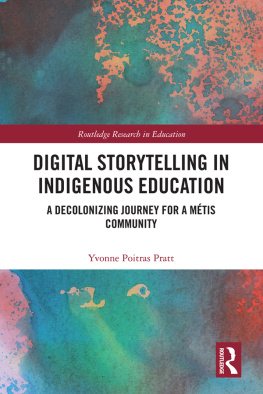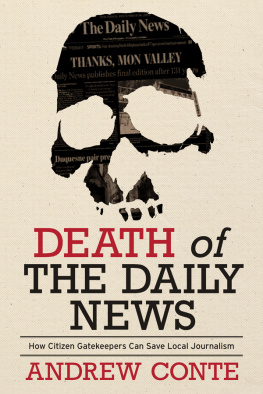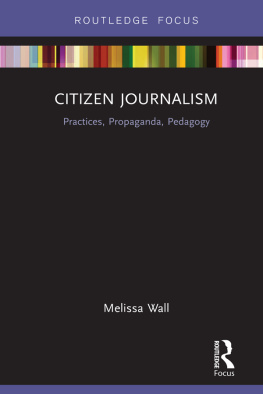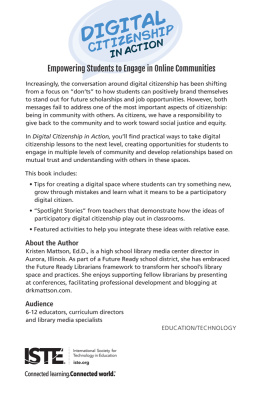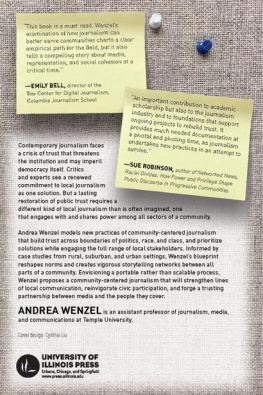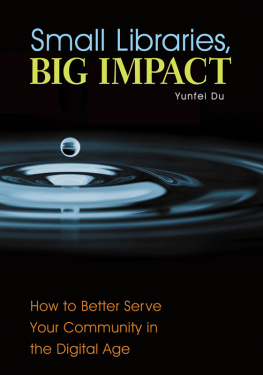Sue Robinson - Community Journalism Midst Media Revolution
Here you can read online Sue Robinson - Community Journalism Midst Media Revolution full text of the book (entire story) in english for free. Download pdf and epub, get meaning, cover and reviews about this ebook. year: 2014, publisher: Routledge, genre: Politics. Description of the work, (preface) as well as reviews are available. Best literature library LitArk.com created for fans of good reading and offers a wide selection of genres:
Romance novel
Science fiction
Adventure
Detective
Science
History
Home and family
Prose
Art
Politics
Computer
Non-fiction
Religion
Business
Children
Humor
Choose a favorite category and find really read worthwhile books. Enjoy immersion in the world of imagination, feel the emotions of the characters or learn something new for yourself, make an fascinating discovery.

- Book:Community Journalism Midst Media Revolution
- Author:
- Publisher:Routledge
- Genre:
- Year:2014
- Rating:3 / 5
- Favourites:Add to favourites
- Your mark:
Community Journalism Midst Media Revolution: summary, description and annotation
We offer to read an annotation, description, summary or preface (depends on what the author of the book "Community Journalism Midst Media Revolution" wrote himself). If you haven't found the necessary information about the book — write in the comments, we will try to find it.
This edited volume documents the changes taking place globally in local community practices. Digital technologies and globalization have forced evolutions in how we go about producing and consuming journalism, and these essays empirically and theoretically advance the scholarly conversations about those trends. What does it mean to serve the information needs of a community in a digitized social world where so many of our ties weak and strong are at least partially maintained in virtual worlds?
With authors and data from all over the world, this work celebrates a fundamental connectedness to citizens and their community and renews the emphasis on home as a mandate for any locally focused news organization. The contributions to this volume explore the flows within both digital spaces and geographic places that are an important foreground to any conversation about what is community today. Several terms are coined and explored in the volume, including geosocial journalism and reciprocal journalism that account for the essentiality of information sharing in global public realms to inspire feelings of community belonging. Other chapters include a review of Patch.com one of the largest grassroots, digital platforms for journalism a survey of how Norwegian community media organizations are adapting to digital worlds, how Swedish citizen sites operate, and the ethics of community journalists to advocate for their citizenry regarding digital matters.
Venturing towards both optimism and dismay, the collection argues that understandings of communal borders have expanded. So even if journalists cannot reach the current locals (such as in Africa as one chapter relates) or globally transient locals, digital technologies can help relocate fractured community into a less problematic, virtual space. This requires commitment on the part of both journalists and citizens to preserve those connections, utilize those technologies, and exercise those fundamental principles of community journalism that go back more than half a century.
This book was originally published as a special issue of Journalism Practice.
Sue Robinson: author's other books
Who wrote Community Journalism Midst Media Revolution? Find out the surname, the name of the author of the book and a list of all author's works by series.

